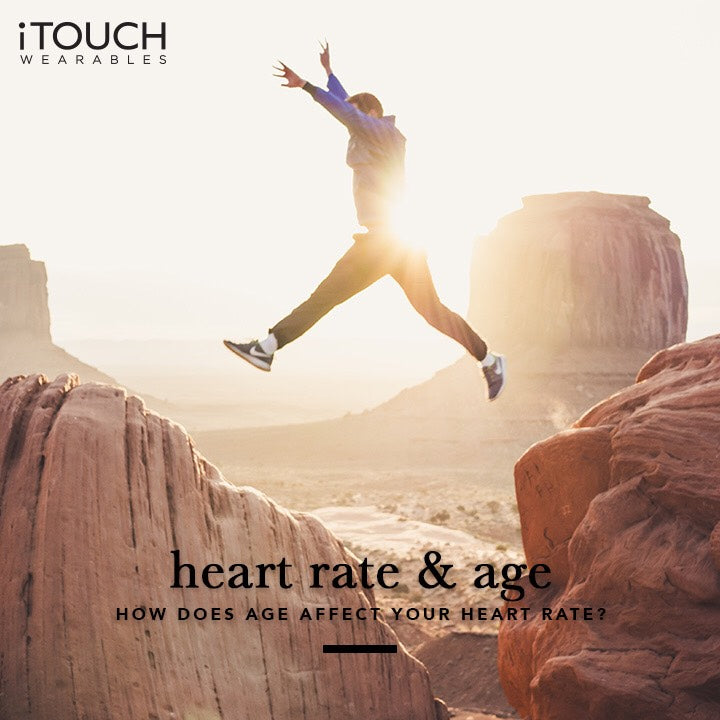
Heart Rate and Age: How Does Age Affect Heart Rate?
Unless you're doing the same workout with someone twice your age and you're both checking your heart rate with a heart rate monitor, you probably won't realize that your numbers will be completely different. The research is clear that heart rate and age affect each other, but how? See the relationship of heart rate and age below.
Target Workout Heart Rate By Age

It's known that your max heart rate decreases with age - regardless of your lifestyle or level of fitness, making your target heart rate and age interconnected. Your target heart rate is what matters first though, which should be between 50% and 85% percent of your maximum heart rate. The target heart rate zone is measured in beats per minute (bpm). This zone is where you want to be for the most effective workout. If you find yourself with a slower heart rate, it's a tell-tale sign to get and stay fit with more cardio exercises. When you go into serious training, you stretch the cardiac muscles, and improve stroke volume. When your stroke volume is higher - meaning your body can pump more blood with each heartbeat - the heart doesn’t have to beat as many times to deliver the same amount of blood to your muscles, which is ideal. See the average target workout heart rate by age below.
- 20 years: 100-170 bpm
- 30 years: 95-162 bpm
- 35 years: 93-157 bpm
- 40 years: 90-153 bpm
- 45 years: 88-149 bpm
- 50 years: 85-145 bpm
- 55 years: 83-140 bpm
- 60 years: 80-136 bpm
- 65 years: 78-132 bpm
- 70 years: 75-128 bpm
Average Resting Heart Rate By Age

Keep in mind, your heart rate during exercise is unique to you and only tells you how hard you're working - not how fit you are. Therefore it isn't accurate to compare heart rates between two different people. Besides having different target heart rates by age, your average resting heart rate will also differ. For adults 18 years old and older, a normal resting heart rate is between 60 and 100 beats per minute (bpm). Keep in mind this does depend on the person’s physical condition and age though. For children ages 6 to 15, the normal resting heart rate is between 70 and 100 bpm. A good time to check this is in the morning after you’ve had a good night’s sleep, and before you eat or drink anything. When it comes to resting heart rate, lower is better because it means your heart muscle is in better condition and doesn’t have to work as hard to maintain a steady beat. That's why an athlete or more active person may have a resting heart rate as low as 40 beats per minute. If your heart rate is higher or lower than average and you don't exercise regularly, be sure to see a doctor to see if it's another underlying issue.
How To Calculate Your Maximum Heart Rate

It's safe to say that getting older affects your max heart rate, which is the highest heart rate you can safely hit during exercise. But how do you calculate your maximum heart rate and try to exercise at the right intensity? This is where heart rate zone monitoring comes into play. The general formula to calculate your maximum heart rate is to take 220 and minus your age. Then you'll have to create your three target heart rate zones based off of that number:
- Fat Burn: 50-65% of your max heart rate
- Cardio: 70-84% of your max heart rate
- Peak: 85-100% of your max heart rate
These zones basically help explain how two people can do the same intensity workout at different heart rates and feel the same amount of effort in place. To put it in perspective: a 20 year old can reach a maximum bpm of 200 at 100%, while a 70 year old can only hit a threshold of 150 bpm. How's that for the effects of heart rate and age?
Share with us your take on heart rate and age by tagging us on Instagram @itouchwearables and Facebook @itouchwearables. Also, be sure to check out our new articles published daily!
-Gina


